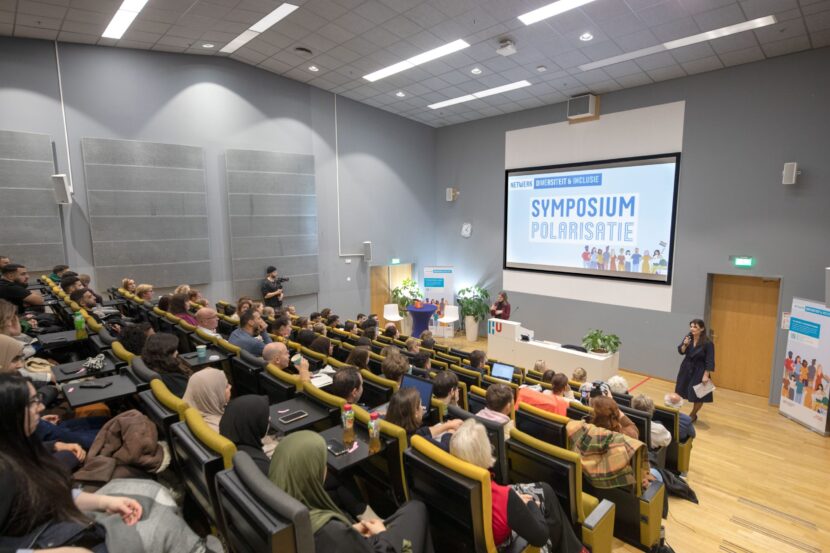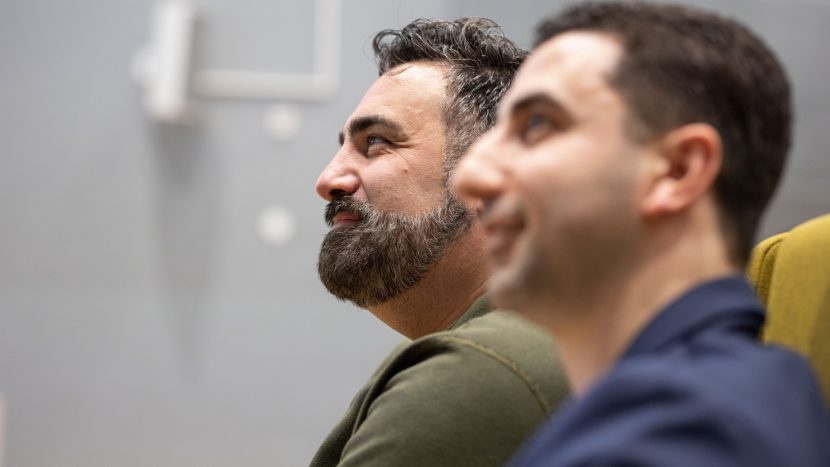November 17th it finally happened; the Symposium Polarization organized by the Network Diversity & Inclusion. But why this theme? Society is polarizing. Opposites are becoming sharper, and people are regularly opposed to each other. Tolerating ‘the other’ is sometimes hard to find. Emotions sometimes run high within the HU as well. The turnout was therefore large.

Richness
The symposium opened with an 800-year-old poem by the Persian poet Saadi Shirazi, recited by Diversity Officer Elena Valbusa and Communications student Niusha Froozesh. The poem was about humanity and was recited in Dutch and old Persian.
After the opening, the floor was handed over to Jan Bogerd, chairman of the Executive Board. Jan Bogerd talked to Elena Valbusa and told a story about his personal experience with polarization. Bogerd: ‘The richness that we have within the HU, society meets here’. Jan Bogerd says that he appreciates all views, left or right, conservative or progressive. At the end of the interview, Elena recites another poem. “Sometimes I think that art can be one of our salvations,” says Elena Valbusa.

Sinan Can
Then it was time for the conversation with Sinan Can, journalist and program maker for Zembla of the VARA, among others.
Sinan was introduced through an excerpt from his documentary Fault Lines’. Emre Çiçek, the teacher of Social Work and driver of the Diversity and Inclusion Network, talked to Sinan. In addition to Emre’s questions, there are also a few nice questions from the audience. “A little more love and empathy lead to less polarization,” says Can. After the conversation, it is time for dinner: pizzas. Dinner is also a moment to catch up with everyone about the first impressions of the Symposium.
Workshop "Sensitive issues"
After the delicious pizzas, it was time for the workshop ‘Sensitive issues’. Nadezda Broshuis, teacher of Social Work, opened the workshop. Nadezda provided the workshop together with two students. The room was divided into four groups. The four different groups talked to each other under the supervision of a teacher or student. The teacher or student presented a personal case to the group. Then the participants split into groups to discuss the personal case based on several questions. The participants listened to each other with respect and entered into a dialogue with each other.
Missed? Watch the after movie here
More?
Read the reportage by Trajectum!
Did you find this interesting? Check out what else the Network D&I has to offer via current.
Do you have any comments, do you want to share your story or would you like to meet? Please contact us via the contact form. We like to keep in touch.



